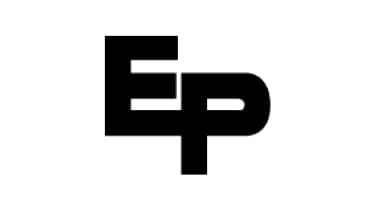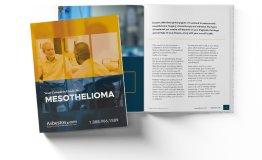EaglePicher Industries Inc.
EaglePicher Industries Inc. produced lead and zinc products, beginning in 1916. They later manufactured asbestos-containing items such as insulation, which were used extensively by the military. EaglePicher created a $400 million trust in 1996 to compensate people exposed to their asbestos products.

-
Amount in Trust: $400 million
-
Year Trust was Created: 1996
Written by Daniel King • Edited By Walter Pacheco • Scientifically Reviewed By Sean Fitzgerald, PG
Asbestos.com is the nation’s most trusted mesothelioma resource
The Mesothelioma Center at Asbestos.com has provided patients and their loved ones the most updated and reliable information on mesothelioma and asbestos exposure since 2006.
Our team of Patient Advocates includes a medical doctor, a registered nurse, health services administrators, veterans, VA-accredited Claims Agents, an oncology patient navigator and hospice care expert. Their combined expertise means we help any mesothelioma patient or loved one through every step of their cancer journey.
More than 30 contributors, including mesothelioma doctors, survivors, health care professionals and other experts, have peer-reviewed our website and written unique research-driven articles to ensure you get the highest-quality medical and health information.
About The Mesothelioma Center at Asbestos.com
- Assisting mesothelioma patients and their loved ones since 2006.
- Helps more than 50% of mesothelioma patients diagnosed annually in the U.S.
- A+ rating from the Better Business Bureau.
- 5-star reviewed mesothelioma and support organization.
Testimonials
My family has only the highest compliment for the assistance and support that we received from The Mesothelioma Center. This is a staff of compassionate and knowledgeable individuals who respect what your family is experiencing and who go the extra mile to make an unfortunate diagnosis less stressful. Information and assistance were provided by The Mesothelioma Center at no cost to our family.LashawnMesothelioma patient’s daughter
How to Cite Asbestos.com’s Article
APA
King, D. (2024, March 25). EaglePicher Industries Inc.. Asbestos.com. Retrieved April 19, 2024, from https://www.asbestos.com/companies/eagle-picher-industries-inc/
MLA
King, Daniel. "EaglePicher Industries Inc.." Asbestos.com, 25 Mar 2024, https://www.asbestos.com/companies/eagle-picher-industries-inc/.
Chicago
King, Daniel. "EaglePicher Industries Inc.." Asbestos.com. Last modified March 25, 2024. https://www.asbestos.com/companies/eagle-picher-industries-inc/.
History of EaglePicher Industries
In 1916, a mining company owned by Oliver Picher merged with the Eagle White Lead company to create EaglePicher Industries Inc. The company mined zinc and diatomaceous earth and used other minerals collected in the mining process to manufacture storage batteries.
The onset of World War II increased demand for EaglePicher products substantially. The military quickly becoming one of the company’s largest battery customers.
The robust business allowed EaglePicher to venture into mining other minerals and manufacturing additional products. One of those minerals was asbestos, which was highly regarded for its durability and resistance to extreme heat and fire. It was considered an ideal material for insulating military ships and other vehicles.
EaglePicher Industries — formerly known as Eagle-Picher Corporation — continued mining asbestos and manufacturing products containing the mineral until the mid-1970s. Thousands of people who built and installed these products faced harmful asbestos exposure.
The company reorganized once in 1991 and again in 2009. It was sold to OM Group Inc. (now known as Vectra) in 2010. It still operates today as EaglePicher Technologies, but the majority of its subsidiaries have been sold to other companies.
EaglePicher Technologies is a global leader in mission-critical power solutions for customers in the defense, aerospace and medical markets. The company acquired San Francisco-based lithium ion Energy Storage System (ESS) manufacturer Lithiumstart Inc. in February 2017.
Lawsuits and Settlements Against EaglePicher
For decades, EaglePicher has fought asbestos claims of people diagnosed with lung cancer, asbestosis and mesothelioma.
By 1982, injured workers diagnosed with mesothelioma and other asbestos diseases began filing lawsuits against the company. EaglePicher filed for bankruptcy protection in 1991 while facing more than $2.5 billion in asbestos-related legal claims, according to The New York Times.
U.S. District Judge Jack B. Weinstein in 1991 ordered a suspension of asbestos cases involving an estimated 70,000 claimants against EaglePicher.
Eagle-Picher listed $416 million in assets and $583 million in liabilities that same year, including $375 million for asbestos claims. The company already has settled 65,000 asbestos claims for about $600 million.
The 1991 bankruptcy filing transferred claims of asbestos victims to bankruptcy court. On November 29 1996, the Eagle-Picher Industries, Inc. Personal Injury Settlement Trust was established and began accepting claims in August 1997.
In January 2021, the trust approved maintaining the payment percentage at 33%, which is considered high compared to other asbestos trust funds.
Charles Press v. EaglePicher
One well-known case involved Charles Press, a U.S. Navy sheet metal worker. From 1941 to 1979, Press worked at the Philadelphia Naval Shipyard and was regularly exposed to asbestos insulation products. These products were manufactured by EaglePicher and other companies.
In 1979, Press and his wife Thelma filed a lawsuit against EaglePicher and 21 other manufacturers to recover the costs of his asbestos-related disease. He passed away four years later, but his widow pursued the suit and won.
In 1984, EaglePicher and seven other defendants were ordered to pay $575,000 to Thelma Press. She received $68,000 from EaglePicher.

Establishment of EaglePicher Asbestos Trust
The company reorganized in 1996 and established an asbestos trust fund of $400 million to cover existing and future claims.
Bankruptcy judge Burton Perlman found the company liable for $2.5 billion in claims arising from the sale of asbestos-containing products, higher than the $1.65 billion proposed by the company and some of its creditors.
The EaglePicher Industries, Inc. Personal Injury Settlement Trust (EPI) began accepting claims on Aug. 1, 1997. To cover trust fund costs, EaglePicher provided $397 million in cash plus shares of the reorganized company’s stock, notes and a type of bond known as a ten-year debenture.
EaglePicher filed for bankruptcy a second time in 2005, due to more than $500 million in new debt from asbestos and other environmental claims.
Asbestos-Containing Products from EaglePicher
Asbestos was a primary additive in EaglePicher’s insulation, but the company manufactured other products with asbestos, too.
Common EaglePicher Asbestos Products
- Insulation brands Hylo Block and Supertemp Block
- Weatherproofing brands Swetcheck B, Insulseal, Stalastic and Spray-Mastic
- Cement brands Super 66 Insulating Cement, One-Cote Insulating Cement, Hylo Finishing Cement and 43 Insulating Cement
- Pipe insulating material brands Eagle-Picher Pipe Covering and Hylo Pipe Covering
- Other construction materials including house paints, fire proofing, mineral wool, triple-slide windows, low-pressure covering and fire- and water-resistant jacketing
EaglePicher Jobs with Highest Risk of Asbestos Exposure
People in many types of jobs may have come into contact with EaglePicher asbestos products throughout their careers. Individuals exposed to asbestos in the company’s products typically worked in the construction industry.
Occupations with High Asbestos Exposure Risks from EaglePicher Products
- Insulators
- Roofers
- Railroad workers
- Bricklayers
- Petrochemical workers
- Drywall installers
- Shipyard workers
- Power plant workers
Any person who worked in the vicinity of a job using EaglePicher insulation may have inhaled harmful asbestos fibers as well. According to the EaglePicher Industries Settlement Trust, more than 6,500 employers are presumed to have used the company’s asbestos products.
To minimize fire risk, asbestos-containing insulating materials were mandatory on U.S. Navy ships during World War II. Because EaglePicher supplied the U.S. military, servicemen and women also faced asbestos exposure risks from its products.







